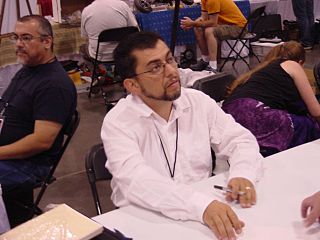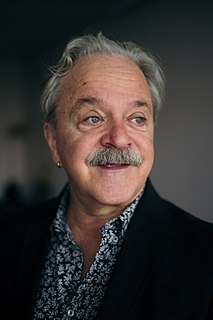A Quote by Mark Waid
I love the challenge of taking established, iconic comics characters and showing readers why they remain contemporary.
Quote Topics
Related Quotes
Some of the things I love the most are when a writer or a visionary takes on sort of an iconic character and then spins it. Like with Frank Miller, Batman was this one thing for basically forty years, and then Frank Miller came along and said he can also be this other thing. And Christopher Nolan came along and said he can also be this other thing. The idea of taking iconic comic book characters or superhero characters or mythic characters and subverting the genre or coming up with a new idea is something that's really interesting to me.
I love the fact that so many of my readers are intelligent, exceptional, accomplished people with an open-minded love of diversity. But even more than that, I love it when my readers find lasting friendship with others of my readers - knowing that they met through their mutual affection for my books and characters makes me happy!
I don't even know why, but my entire career is contemporary films. Entire career! There's no period movies - there's one - but there's no period movies, no special effects movies. I just do character studies and so, some of them are gonna bump into each other, but I love the challenge, with a good script. I love the challenge of playing not a very pleasant or attractive character that seduces an audience or wins an audience over by the end.
When you're directing an ongoing series, the tone has already been set. So a director will come in and fulfill that tone - reinforce the characters and their behavior. The challenge is to find unique ways that you can visually tell the story while keeping the established tone and the pace and the characters.
I don't think comics use iconic forms - or they don't have to. But that makes them even more "cool," if I understand the idea. One has to be quite involved to make comics work. Signals have to be decoded on both the verbal and visual level, simultaneously, and the reader must do a lot of cognitive work between panels as well. Comics definitely need an engaged reader.





































